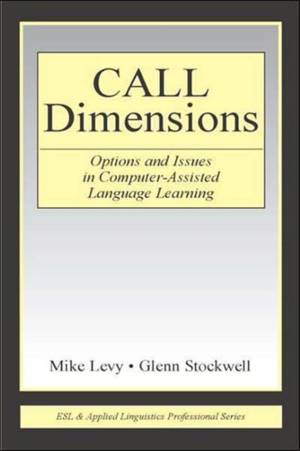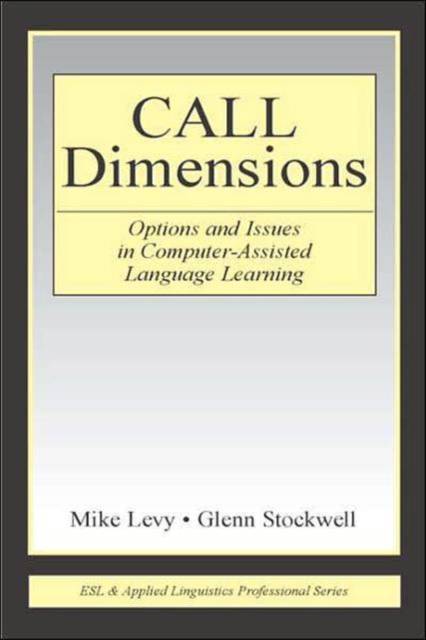
- Afhalen na 1 uur in een winkel met voorraad
- Gratis thuislevering in België vanaf € 30
- Ruim aanbod met 7 miljoen producten
- Afhalen na 1 uur in een winkel met voorraad
- Gratis thuislevering in België vanaf € 30
- Ruim aanbod met 7 miljoen producten
Zoeken
CALL Dimensions
Options and Issues in Computer-Assisted Language Learning
Mike Levy, Glenn Stockwell
€ 86,95
+ 173 punten
Uitvoering
Omschrijving
This volume gives language teachers, software designers, and researchers who wish to use technology in second or foreign language education the information they need to absorb what has been achieved so far and to make sense of it. It is designed to enable the kind of critical reading of a substantial literature that leads to a balanced and detailed knowledge of the field.Chapter by chapter, the book builds, through description, analysis, examples, and discussion, a detailed picture of modern CALL.
In this book, the label "CALL" is interpreted broadly to include technology-enhanced language learning, Web-enhanced language learning, and information and communication technologies for language learning. The work is distinguished by its attention to a range of languages rather than just English. The authors first set the scene and introduce major areas of interest and growth in CALL, and then look in depth at seven important dimensions: design, evaluation, computer-mediated communication, theory, research, practice, and technology. Chapters on each of these topics include a description that reviews the recent literature, identifies themes, and presents representative projects that illustrate the dimension, followed by a discussion that provides in-depth analysis, and a conclusion offering suggestions for further work. Detailed references and links connect the description and discussion with original works and primary sources so the reader can follow up easily on areas of personal interest. Two concluding chapters discuss how the various dimensions might be brought together, the first from a practical point of view, the second with a view to the development of CALL as a whole.Specificaties
Betrokkenen
- Auteur(s):
- Uitgeverij:
Inhoud
- Aantal bladzijden:
- 328
- Taal:
- Engels
- Reeks:
Eigenschappen
- Productcode (EAN):
- 9780805856347
- Verschijningsdatum:
- 31/05/2006
- Uitvoering:
- Paperback
- Formaat:
- Trade paperback (VS)
- Afmetingen:
- 155 mm x 229 mm
- Gewicht:
- 444 g

Alleen bij Standaard Boekhandel
+ 173 punten op je klantenkaart van Standaard Boekhandel
Beoordelingen
We publiceren alleen reviews die voldoen aan de voorwaarden voor reviews. Bekijk onze voorwaarden voor reviews.











